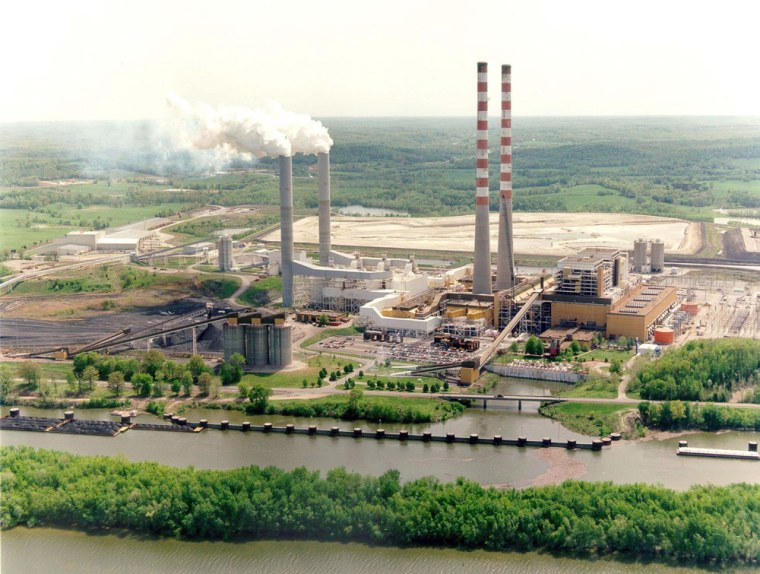Attorneys general from eight states and New York City are stepping into the debate over global climate change, vowing to force the nation’s largest power companies to cut their carbon dioxide emissions.
Officials from California, Connecticut, Iowa, New Jersey, New York, Rhode Island, Vermont and Wisconsin, along with New York City’s corporation counsel, on Wednesday filed a public nuisance lawsuit in federal district court in Manhattan.
The lawsuit does not ask for money. Instead, Connecticut Attorney General Richard Blumenthal said the goal is to “save our planet from disastrous consequences that are building year by year and will be more costly to prevent and stop if we wait.”
“Some may say that the states have no role in this kind of fight or that there’s no chance of success. To them I would say think tobacco,” he said. “We’re here because the federal government has abdicated its responsibility as it also did with tobacco.”
Blumenthal said he expects more states to join in the legal action.
The plaintiffs want a federal judge to force five power producers — American Electric Power Co., Southern Co., Xcel Energy Inc., Cinergy Corp. and the federal Tennessee Valley Authority — to reduce emissions 3 percent annually for 10 years.
The plaintiffs, some representing Republican administrations, claim those power producers own 174 fossil fuel-burning power plants that produce 646 million tons of carbon dioxide annually — a quarter of the U.S. power industry's total and about 10 percent of the nation’s total.
'New legal frontier'
The attorneys general claim greenhouse gases like carbon dioxide could have catastrophic effects, including increased asthma and heat-related illness, depletion of drinking water supplies, a decline in fisheries and erosion of infrastructure.
"This lawsuit opens a new legal frontier in the fight against global warming - a challenge that poses a serious threat to our environment, our natural resources, our public health and safety, and our economy," California Attorney General Bill Lockyer said in a statement. "A head-in-the-sand response is not an option. For the sake of our people and their future, we must act now."
New York City Mayor Michael Bloomberg, a Republican, joined the states as well. "The City of New York has joined this action out of concern for the impacts that global warming will have on the City and its residents and as part of the Bloomberg administration's commitment to maintaining a clean and sustainable New York," Counsel Michael Cardozo said in the statement.
Environmentalists welcomed the move. In the absence of federal regulation on greenhouse gas emissions, the only way to regulate emissions is “if states like these ... take action,” said Frank O’Donnell, executive director for Clean Air Trust.
President Bush has instead promoted cutbacks in emissions through new technology and voluntary programs, arguing that mandatory reductions could hurt the U.S. economy.
Industry's response
Scott Segal, director of the Washington, D.C.-based Electric Reliability Coordinating Council, a group that includes Atlanta-based Southern, criticized the lawsuit for trying to hold individual companies responsible for global climate change.
“If you gave the facts of global climate change to a first-year law student, and they recommended a public nuisance case, they would get an ‘F,”’ Segal said. “The idea that any one company’s emissions are responsible for global climate change is more political science than environmental science.”
"The nuisance case is just an exercise in election-year forum shopping," he added.
Jeffrey Marks, with the National Association of Manufacturers, which represents AEP, Southern and Cincinnati-based Cinergy, said regulating carbon dioxide emissions would severely depress the U.S. economy, limit the use of fossil fuels, and hinder environmental improvements.
Pat Hemlepp, a spokesman for Columbus, Ohio-based AEP, agreed, saying, “A lawsuit is not a constructive way to deal with climate change. There is nothing one company, five companies, or one country can do to resolve global warming. It will require a global commitment including developing nations.”
